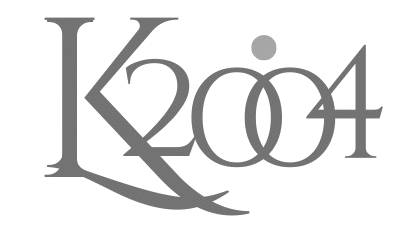What does “Up Top!” mean?
At its simplest, “Up Top!” is an exclamation that points upward literally or figuratively. People shout it to celebrate, to call for a high-five (slang: “gimme five up top!”), or to announce something happening on a rooftop or higher level. Over time the phrase has been adopted as a brandable name for restaurants, events, songs, and businesses because it’s punchy, easy to remember, and evokes energy and elevation.
Where you’ll find “Up Top!” common uses
- Music and entertainment. Several songs and tracks use “Up Top” in their titles or lyrics, often to convey energy, elevation, or partying. Music producers and artists have chosen it for singles and album tracks.
- Restaurants, bars, and rooftop events. “Up Top” is a natural fit for rooftop comedy nights, cafes, grills, and bars that want to emphasize a high-up view or an elevated experience (literally “up top”). Rooftop comedy events, for example, package the phrase with the promise of great views and live laughs.
- Retail and brands. Clothing lines, outdoor-gear retailers, and other small brands use “UpTop” or “UPTOP” as a short, memorable brand name that suggests lifestyle, adventure, or simply “levels up.”
- Local businesses. You’ll also see “Up Top” used as the name of neighborhood food spots or grills especially those that want to sound friendly and streetwise.
- Other niches. The phrase has also been adopted by niche businesses (e.g., dispensaries, specialty outfitters) as a way to communicate local, elevated, or curated experiences.
Why the phrase works (language + marketing)
- Short and memorable. Two monosyllabic words easy to shout, easy to remember.
- Versatile imagery. “Up” suggests elevation, progress, better views, celebration; “Top” suggests the best or highest point. Together they form a powerful positive image.
- Social and physical usage. It works both for physical spaces (rooftops, second-floor venues) and for abstract concepts (leveling up in life, “we’re on top”).
- Brandability. The phrase is flexible for logos, hashtags (#UpTop), and event names which makes it attractive for marketers.
Examples (real-world quick tour)
- Music tracks named “Up Top” appear across genres, used by artists to signal hype or ascent in tone and lyrics.
- Rooftop comedy shows titled “Up Top Comedy” host intimate lineups in rooftop venues, using the name to sell both the view and the vibe.
- Local eateries named “Up Top Grill” or “Up Top Cafe” typically emphasize comfort food, casual vibes, and community presence
- Retail brands like UPTOP clothing use the name to suggest outdoor, active, or lifestyle-focused collections.
How to use “Up Top!” in your writing or branding
- Tone: Keep it energetic and informal. It’s a friendly, upbeat phrase match it with clear, punchy copy.
- Visuals: Pair it with imagery of heights (skyline, rooftop, mountain peak) or celebratory gestures (high-fives).
- Hashtags and search terms: Use variations like
#UpTop,Up Top Grill,UpTop Cafe, andUpTop Comedyto cover different audiences. - SEO tip: Because “Up Top” is used by many different businesses and songs, add a descriptive modifier for discoverability — e.g., “Up Top Rooftop Comedy Nashville” or “Up Top Grill Bronx menu.”
Writing examples (3 short taglines)
- “Up Top — where the view meets the vibe.”
- “Celebrate life. Up top, every time.”
- “Up Top Cafe — morning views, all-day comfort.”
Quick guide to naming with “Up Top”
If you’re considering using the phrase for a business or event:
- Check domain and social handle availability (short usernames like @UpTop are often taken).
- Add a descriptor: “Up Top Grill,” “Up Top Comedy,” or “UpTop Outdoors.”
- Consider location or niche in the name for local SEO: “Up Top NYC Rooftop Bar.”
- Protect your brand: look into trademark availability if you plan to scale.
FAQs
Q: Is “Up Top!” trademarkable?
A: It depends on how it’s used and whether similar marks exist in your industry. Generic/exclamatory phrases are harder to protect, but unique stylizations or combined marks (e.g., logo + name, or “UpTop Adventures”) can be registered. Consult a trademark attorney for specifics.
Q: Will the phrase confuse people searching online?
A: Possibly — because many unrelated businesses and songs use it. Adding a niche or location word helps search engines match intent.
Q: Is it appropriate for formal brands?
A: “Up Top!” reads informal and energetic. It fits lifestyle, hospitality, entertainment, and casual retail brands better than formal corporate identities.
Conclusion
“Up Top!” is more than two words it’s a flexible cultural token you’ll find in music, food, events, and brand names. It communicates elevation, celebration, and a fresh viewpoint. Whether you’re naming a rooftop comedy night, a neighborhood cafe, or a single to drop on streaming platforms, “Up Top!” gives you an immediately approachable and memorable hook just be intentional about the descriptor you pair with it so people can actually find you.







